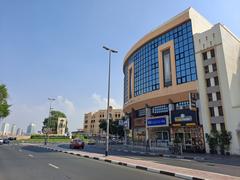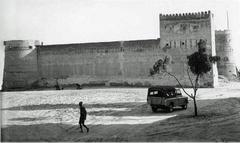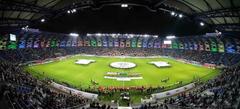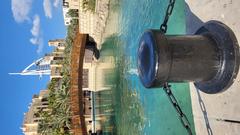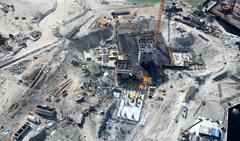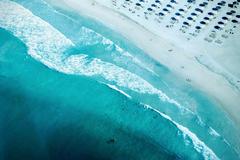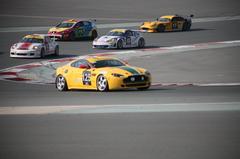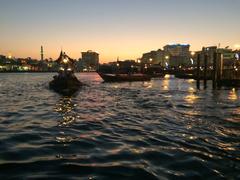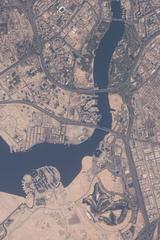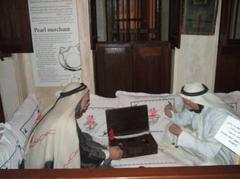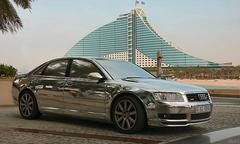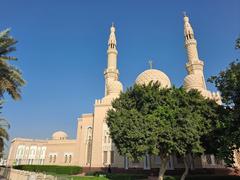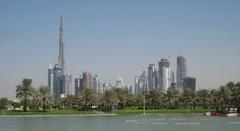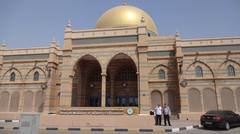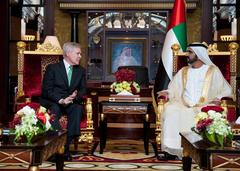Comprehensive Guide to Visiting Dubai, Emirate of Dubai, United Arab Emirates
Date: 14/08/2024
Captivating Introduction
Imagine stepping into a world where futuristic skyscrapers rise from ancient desert sands, where the call to prayer mingles with the hum of modernity—welcome to Dubai, the crown jewel of the United Arab Emirates. This city is a symphony of contrasts, where luxury and tradition dance together in a mesmerizing ballet. From its humble beginnings as a sleepy fishing village known as ‘Dibei’ in the 10th century, Dubai has metamorphosed into a global powerhouse, thanks to its strategic location along the Arabian Gulf and the visionary leadership of the Al Maktoum dynasty. The discovery of oil in the 1960s was a game-changer, propelling Dubai into an era of unprecedented growth and modernization (Wikipedia) (Travel to Dubai Blog) (Visit Dubai).
But Dubai is more than just gleaming towers and opulent malls. It’s a melting pot of cultures, a testament to human ambition, and a beacon of innovation. Picture yourself wandering through the narrow lanes of the Al Fahidi Historic District, where traditional courtyard buildings and wind towers offer a glimpse into the city’s storied past. Or imagine the thrill of a desert safari, where the golden dunes stretch as far as the eye can see, and the night sky is a canvas of stars. This guide aims to be your ultimate companion, offering insider tips, hidden gems, and practical information to make your Dubai adventure unforgettable. Whether you’re here for a weekend getaway or a week-long adventure, Dubai promises an experience that transcends the ordinary (Lonely Planet).
Table of Contents
- History of Dubai
- Early Beginnings and Islamic Influence
- The Rise of Trade and Pearling Industry
- The Al Maktoum Dynasty and British Influence
- Economic Transformation and Modernization
- Formation of the United Arab Emirates
- Modern Dubai: A Global Powerhouse
- Cultural Heritage and Modern Attractions
- Visitor Tips for Exploring Dubai’s History
- Practical Information for Tourists
- Time-Based Itineraries
- Local Lingo Lessons
- Hidden Gems and Local Secrets
- Seasonal Highlights
- Myth Busting and Surprises
- Storytelling Elements
- FAQs
- Call to Action
- Significance of Dubai
- Historical Significance
- Economic Significance
- Cultural Significance
- Architectural Significance
- Tourism Significance
- Technological Significance
- Environmental Significance
- Social Significance
- Visitor Tips
- Key Attractions
- Accommodation
- Dining
- Shopping
- Entertainment
- Activities for Families
- Adventure and Outdoor Activities
- Wellness and Relaxation
- Festivals and Events
- Practical Information
History of Dubai
Early Beginnings and Islamic Influence
Did you know that Dubai’s name was first recorded as ‘Dibei’ in the 10th century? The city then was a humble fishing village basking under the Arabian sun. Fast forward a bit, and by the 7th century, the arrival of Islam via the Umayyads sparked a transformation, opening trade routes that reached as far as modern Pakistan, India, and even China. Imagine the bustling markets filled with spices, pearls, and stories from distant lands! (Wikipedia).
The Rise of Trade and Pearling Industry
Picture this: It’s the late 16th century, and Dubai is already a buzzing trade hub. The Venetian jeweler Gasparo Balbi noted Dubai’s thriving pearling industry. Skilled divers braving the deep blue Arabian Gulf to harvest precious pearls, which brought significant wealth to the emirate. This wasn’t just business; it was an art form that shaped Dubai’s early identity (Travel to Dubai Blog).
The Al Maktoum Dynasty and British Influence
In 1833, the Al Maktoum dynasty took control of Dubai, and with a stroke of good fortune, the city began its modern journey. Imagine the scene: a small fishing village poised on the brink of transformation. With the British signing the General Maritime Peace Treaty in 1820, aimed at curbing piracy, the region found a new stability. By 1892, Dubai became a British protectorate, setting the stage for its future growth (Wikipedia).
Economic Transformation and Modernization
Cue the 1960s and the black gold rush: oil. This discovery was a game-changer, propelling Dubai into an era of rapid modernization. The city saw the construction of modern roads, ports, and airports. The oil boom didn’t just fill coffers; it transformed everyday life, making Dubai a beacon of prosperity. Imagine the skyline morphing from modest buildings to towering skyscrapers almost overnight (Travel to Dubai Blog).
Formation of the United Arab Emirates
In 1971, Dubai joined forces with Abu Dhabi and five other emirates to form the United Arab Emirates (UAE). Sheikh Rashid bin Saeed Al Maktoum was instrumental in this union, leading to a new era of development and prosperity. The British flag came down, and a new chapter began (Travel to Dubai Blog).
Modern Dubai: A Global Powerhouse
Today, Dubai is synonymous with luxury, innovation, and a melting pot of cultures. Think of the Burj Khalifa piercing the sky, the Palm Jumeirah reshaping the coastline, and the Dubai Mall setting retail records. Dubai’s ability to host global spectacles like Expo 2020 showcases its status as a cosmopolitan hub. This city is where dreams come to life (Travel to Dubai Blog).
Cultural Heritage and Modern Attractions
Dubai’s cultural landscape is a tapestry of old and new. From world-class art galleries and museums to traditional music festivals, the city’s cultural offerings are vast. Dive into history at the Dubai Museum in Al Fahidi Fort, or feel the weight of history at Union House, where the UAE was born in 1971. These landmarks aren’t just sites; they’re stories waiting to be told (Travel to Dubai Blog).
Visitor Tips for Exploring Dubai’s History
- Dubai Museum: Delve into Dubai’s past at the Al Fahidi Fort. It’s not just a museum; it’s a time machine.
- Union House: Discover the birthplace of the UAE and the visionary leaders who shaped the nation.
- Bastakiya Quarter: Wander through this historic district to see traditional Emirati architecture up close. It’s like stepping into a different era.
- Pearl Diving Tours: Get hands-on with Dubai’s pearling history. Dive in and uncover the secrets of the deep.
Practical Information for Tourists
- Climate: Dubai’s desert climate means scorching summers and mild winters. Visit between November and March for the most pleasant weather.
- Dress Code: Modesty is key, especially at religious sites. But don’t worry, Dubai’s fashion scene is as dazzling as its skyline.
- Currency: Carry some AED for those charming little market buys, but credit cards are your best friend here.
- Language: Arabic is the official language, but English is your trusty guide. You’ll find it spoken everywhere.
Time-Based Itineraries
- 24 Hours in Dubai: Start with a sunrise at Burj Khalifa, followed by a stroll through Bastakiya Quarter. Dive into lunch at a local eatery, then explore Dubai Museum. Cap your day with dinner at an iconic rooftop restaurant.
- Weekend Getaway: Day one: Hit the beaches and soak up the sun. Day two: Explore the malls and end with a desert safari.
- Week-Long Adventure: Mix it up with cultural tours, thrilling dune bashing, luxury shopping, and savoring local cuisine.
Local Lingo Lessons
- Marhaba (Hello) – Greet locals like a pro with this friendly word.
- Shukran (Thank you) – A little gratitude goes a long way.
- Yalla (Let’s go) – Perfect for when you’re ready to explore!
Hidden Gems and Local Secrets
- Alserkal Avenue: A haven for art lovers, showcasing Dubai’s vibrant creative scene.
- Ras Al Khor Wildlife Sanctuary: Escape the city and meet flamingos up close.
- Al Marmoom Bedouin Experience: Dive into the desert for a taste of traditional Emirati life.
Seasonal Highlights
- Winter: Dubai Shopping Festival – A paradise for shopaholics.
- Spring: Al Marmoom Heritage Festival – Experience traditional Emirati culture.
- Summer: Beat the heat at indoor attractions like Ski Dubai.
- Autumn: Global Village – Explore cultures from around the world.
Myth Busting and Surprises
- Myth: Dubai is all about luxury. Reality: There’s a rich history and vibrant local life waiting to be discovered.
- Surprise: Dubai has a thriving underground music scene!
Storytelling Elements
- The Pearl Diver’s Tale: Imagine a day in the life of a pearl diver, braving the deep sea to find treasures.
- The Visionary Ruler: Sheikh Rashid bin Saeed Al Maktoum’s dream of a united UAE.
FAQs
- Q: Is Dubai safe for tourists? A: Absolutely! Dubai is known for its low crime rate and welcoming atmosphere.
- Q: What’s the best way to get around? A: Taxis, metro, and even water taxis! Dubai’s transport system is top-notch.
- Q: Can I drink alcohol in Dubai? A: Yes, but only in licensed venues like hotels and bars.
Call to Action
Ready to dive into Dubai’s captivating history and vibrant present? Download the Audiala app to get the most out of your Dubai adventure. From interactive maps to insider tips, Audiala is your ultimate travel companion. Explore, discover, and make memories with Audiala by your side!
Significance of Dubai
Imagine a city where futuristic skyscrapers rise from ancient desert sands, where tradition seamlessly blends with innovation—welcome to Dubai!
Historical Significance
Dubai’s history is a testament to its resilience and ambition. The earliest recorded mention of Dubai dates back to 1095 in the Book of Geography by the Andalusian-Arab geographer Abu Abdullah al-Bakri. However, evidence of human settlement in the region dates back to the Bronze Age (Travel to Dubai Blog). The city’s strategic location along the Arabian Gulf has made it a significant trading hub for centuries.
In 1833, the Al Maktoum tribe established Dubai as a fishing settlement, marking the beginning of its modern history (Visit Dubai). The discovery of oil in 1966 was a turning point, attracting foreign trade and stimulating the economy. Dubai’s economy diversified over the decades, incorporating shipping, finance, and tourism (Visit Dubai).
Economic Significance
Dubai’s economy is one of the most diversified in the Gulf Cooperation Council (GCC). The emirate’s GDP was estimated at $108 billion in 2023, with the non-oil sector contributing around 95% (Travel to Dubai Blog). Key sectors include real estate, tourism, aviation, and financial services. The Dubai International Financial Centre (DIFC) is a leading financial hub in the Middle East, Africa, and South Asia (MEASA) region (Visit Dubai).
Cultural Significance
Dubai is a melting pot of cultures, with expatriates making up approximately 85% of its population. This cultural diversity is reflected in the city’s culinary scene, festivals, and daily life. The Al Fahidi Historic District offers a glimpse into Dubai’s past, featuring traditional courtyard buildings and wind towers (Lonely Planet). The Sheikh Mohammed Centre for Cultural Understanding provides guided tours to promote cultural awareness and understanding (Lonely Planet).
Architectural Significance
Dubai is renowned for its futuristic skyline, dominated by iconic structures like the Burj Khalifa, the world’s tallest building at 828 meters (Airalo). The Dubai World Trade Centre, opened in 1979, was the city’s first skyscraper and remains an architectural icon (Visit Dubai). The Palm Jumeirah, an artificial archipelago, is another marvel of modern engineering (Airalo).
Tourism Significance
Tourism is a cornerstone of Dubai’s economy, attracting millions of visitors annually. The city offers a plethora of attractions, from luxury shopping malls like the Dubai Mall to cultural sites like the Al Ahmadiya School, Dubai’s first school built in 1912 (Visit Dubai). The Dubai Fountain, located at the base of the Burj Khalifa, is the world’s largest choreographed fountain system (Lonely Planet).
Technological Significance
Dubai is at the forefront of technological innovation in the region. The city hosted Expo 2020, which showcased advancements in sustainability, mobility, and opportunity (Travel to Dubai Blog). The Dubai Future Foundation and the Museum of the Future are dedicated to exploring and promoting technological advancements (Airalo).
Environmental Significance
Despite its rapid urbanization, Dubai is committed to sustainability. The Dubai Clean Energy Strategy 2050 aims to make Dubai a global center of clean energy and green economy (Visit Dubai). The city is also home to the Dubai Desert Conservation Reserve, which protects the natural habitat of the Arabian Desert (Airalo).
Social Significance
Dubai is known for its high standard of living and safety. The city ranks as one of the top liveable cities in the Middle East and Africa (source). The government provides extensive social services, including healthcare and education, to its residents (Visit Dubai).
Visitor Tips
- Best Time to Visit: The ideal time to visit Dubai is during the cooler months from November to March. The weather is pleasant, making it perfect for outdoor activities (Visit Dubai).
- Currency: The local currency is the UAE Dirham (AED). Credit cards are widely accepted, but it’s advisable to carry some cash for small purchases (Visit Dubai).
- Dress Code: While Dubai is relatively liberal, it’s respectful to dress modestly, especially in public places and religious sites (Lonely Planet).
- Transportation: Dubai has an efficient public transportation system, including the Dubai Metro, buses, and taxis. Ride-hailing apps like Uber and Careem are also popular (Visit Dubai).
- Safety: Dubai is considered one of the safest cities in the world. However, it’s always wise to take standard precautions, such as safeguarding personal belongings (Visit Dubai).
Key Attractions
- Burj Khalifa: The tallest building in the world, offering panoramic views of the city from its observation deck (Airalo).
- Dubai Mall: One of the largest shopping malls globally, featuring an aquarium, ice rink, and numerous retail outlets (Airalo).
- Dubai Fountain: The world’s largest choreographed fountain system, located at the base of the Burj Khalifa (Lonely Planet).
- Al Fahidi Historic District: A restored heritage area offering a glimpse into Dubai’s past (Lonely Planet).
- Palm Jumeirah: An artificial archipelago featuring luxury hotels, restaurants, and beaches (Airalo).
Accommodation
Dubai offers a wide range of accommodation options to suit all budgets. Downtown Dubai is ideal for tourists, providing easy access to major attractions like the Burj Khalifa and Dubai Mall (Airalo). For those seeking sun and sand, Jumeira and Dubai Marina are popular choices (Airalo).
Dining
Dubai’s culinary scene is as diverse as its population. From high-end restaurants to street food, the city offers a wide range of dining options. Notable areas for food enthusiasts include Downtown Dubai, Jumeirah, and the Al Fahidi Historic District (Visit Dubai).
Shopping
Dubai is a shopper’s paradise, known for its luxury malls and traditional souks. The Dubai Mall and Mall of the Emirates are must-visit destinations for retail therapy (Lonely Planet). For a more traditional shopping experience, the Gold Souk and Spice Souk in Deira are worth exploring (Airalo).
Entertainment
Dubai offers a vibrant nightlife and entertainment scene. From world-class concerts to traditional performances, there’s something for everyone. The Dubai Opera and various beach clubs are popular venues for live entertainment (Visit Dubai).
Activities for Families
Dubai is a family-friendly destination with numerous activities for children. The Dubai Aquarium, KidZania, and various theme parks like IMG Worlds of Adventure and Dubai Parks and Resorts are popular choices (Airalo).
Adventure and Outdoor Activities
For adventure seekers, Dubai offers a range of outdoor activities, from desert safaris to water sports. The Dubai Desert Conservation Reserve provides opportunities for camel riding, sandboarding, and wildlife spotting (Airalo). The city’s beaches and resorts also offer various water sports, including kayaking and jet skiing (Airalo).
Wellness and Relaxation
Dubai is home to numerous luxury spas and wellness centers. The city offers a range of treatments, from traditional hammams to modern wellness therapies. Notable spas include the Talise Spa at the Burj Al Arab and the One&Only Spa at the One&Only Royal Mirage (Visit Dubai).
Festivals and Events
Dubai hosts numerous festivals and events throughout the year, attracting visitors from around the world. The Dubai Shopping Festival, Dubai Food Festival, and Dubai International Film Festival are some of the major events on the city’s calendar (Visit Dubai).
Practical Information
- Visa Requirements: Visitors from many countries can obtain a visa on arrival. It’s advisable to check the latest visa requirements before traveling (Visit Dubai).
- Language: Arabic is the official language, but English is widely spoken and understood.
- Emergency Numbers: The emergency number for police, ambulance, and fire services is 999.
By understanding the significance of Dubai in various aspects, visitors can better appreciate the city’s unique blend of tradition and modernity, making their experience truly memorable.
Visitor Tips for Dubai
Welcome to Dubai: The Oasis of Luxury
Step into Dubai, a city where modern skyscrapers rise from the desert sands and luxury is a way of life. Whether you’re drawn by the tallest building in the world or the allure of traditional souks, Dubai promises a blend of the extraordinary and the opulent.
Best Time to Visit
Dubai’s climate is a dramatic tale of extremes. Visit between November and February, when the sun is kinder, and temperatures are a delightful 25°C (77°F). This is the perfect time for a stroll along the marina or a desert safari. But remember, this is also peak tourist season, so book early to avoid the crowds and high prices (Full Suitcase).
Accommodation and Transportation
From the luxurious Burj Al Arab to quaint Airbnb rentals, Dubai’s accommodation options are as varied as its skyline. Choose to stay in vibrant Downtown Dubai, the chic Dubai Marina, or the beachfront Jumeirah Beach Residence (Out of Your Comfort Zone).
Public transport here is a breeze. The metro, buses, and trams are spotless and air-conditioned. Taxis are affordable, and for the adventurous, renting a car is always an option—just brace yourself for the fast-paced traffic (Lonely Planet).
Cultural Sensitivity and Dress Code
Dubai may be cosmopolitan, but respecting local customs is key. Dress modestly—think shoulders and knees covered when in malls or markets. Swimwear is fine at the beach but not in public areas (Visit Dubai).
Public displays of affection can lead to fines or worse. Holding hands is okay, but kissing and hugging in public are strictly off-limits (Lonely Planet).
Essential Documents and Payments
Always carry your passport and visa. Many nationalities can get a visa on arrival, but check the requirements for your country (Dubai Tickets).
Dubai is a cashless paradise. Credit cards are accepted almost everywhere, but having some local currency (AED) for small purchases is wise (Condé Nast Traveler).
Dining and Shopping Tips
From street vendors to Michelin-starred restaurants, Dubai’s dining scene is diverse. Reservations are a must for popular spots (Condé Nast Traveler). Avoid tourist traps; seek out local eateries for authentic flavors.
Shopping is a national pastime here. Malls and souks offer everything from luxury brands to traditional crafts. Look for deals during the Dubai Shopping Festival (Lonely Planet).
Safety and Health Precautions
Dubai is among the safest cities globally, but sunburn is a common concern. Wear sunscreen and stay hydrated. Tap water is safe, but bottled water is plentiful (Art and Then Some).
Alcohol can only be consumed in licensed venues. Public intoxication and drunk driving are illegal, with a zero-tolerance policy (Art and Then Some).
Accessibility and Special Considerations
Modern infrastructure makes Dubai accessible for people with disabilities. However, older areas may lack these features (Lonely Planet).
LGBTIQ+ travelers should exercise discretion, as laws are strict regarding homosexuality (Lonely Planet).
Booking and Reservations
Dubai is always bustling. Secure your spots for attractions and activities well in advance. Iconic sites like the Burj Khalifa can book up months ahead during peak season (Condé Nast Traveler).
Local Etiquette and Customs
Greetings are warm and should be initiated by women. Use your right hand for handshakes and giving or receiving items (Visit Dubai).
Photography restrictions apply in certain areas. Always ask permission before photographing people, especially women and children (Lonely Planet).
Weather and Packing Tips
Dubai’s weather varies from scorching summers (June to September) with temperatures up to 45°C (113°F) to mild winters (October to May) with temperatures between 20–35°C (68–95°F) (Visit Dubai).
Pack light, breathable clothing for daytime and a light jacket for cooler evenings. Essentials include sunscreen, sunglasses, and a hat (Lonely Planet).
Must-See Attractions
Dubai offers a mix of modern marvels and traditional experiences:
- Burj Khalifa: The world’s tallest building with breathtaking views (Airalo).
- Dubai Mall: A retail heaven with an aquarium and ice rink (Airalo).
- Dubai Marina: A scenic area full of dining and entertainment (Airalo).
- Desert Safari: An adventure featuring dune bashing, camel rides, and Bedouin entertainment (Lonely Planet).
Call to Action
Ready to unlock the secrets of Dubai? Download Audiala, the ultimate tour guide app, for expert insights and hidden gems. Make your trip unforgettable with beautifully crafted, concise yet deep audio guides. Explore Dubai like never before—download Audiala today!
Call to Action
As your Dubai journey comes to an end, you’ll find that this city leaves an indelible mark on your soul. From the awe-inspiring heights of the Burj Khalifa to the serene beauty of the Ras Al Khor Wildlife Sanctuary, Dubai offers a kaleidoscope of experiences that cater to every kind of traveler. But beyond its glittering facade and luxurious lifestyle, Dubai is a city deeply rooted in its cultural heritage and traditions. The stories of pearl divers braving the Arabian Gulf, the visionary dreams of Sheikh Rashid bin Saeed Al Maktoum, and the bustling souks filled with spices and trinkets—all these elements weave a rich tapestry that makes Dubai truly unique (Travel to Dubai Blog) (Visit Dubai).
Dubai is not just a destination; it’s a journey through time, a blend of the old and the new, the traditional and the futuristic. It’s a city where you can savor the flavors of the world, shop till you drop, and embark on thrilling adventures—all in one day. So, whether you’re exploring the hidden art galleries of Alserkal Avenue, basking in the sun at Jumeirah Beach, or indulging in the culinary delights of Downtown Dubai, remember that every corner of this city holds a story waiting to be discovered. And what better way to uncover these stories than with Audiala, your ultimate travel companion? Download Audiala today to unlock the secrets and wonders of Dubai, and let your adventure begin (Full Suitcase) (Condé Nast Traveler).
References
- Wikipedia, 2023, History of Dubai (https://en.wikipedia.org/wiki/History_of_Dubai)
- Travel to Dubai Blog, 2023, History of Dubai (https://traveltodubaiblog.com/history-of-dubai/)
- Visit Dubai, 2023, History of Dubai (https://www.visitdubai.com/en/articles/history-of-dubai)
- Lonely Planet, 2023, Top Things to Do in Dubai (https://www.lonelyplanet.com/articles/top-things-to-do-in-dubai)
- Full Suitcase, 2023, Dubai Travel Tips (https://fullsuitcase.com/dubai-travel-tips/)
- Condé Nast Traveler, 2023, Things to Know Before Visiting Dubai (https://www.cntraveler.com/story/things-to-know-before-visiting-dubai)
- Out of Your Comfort Zone, 2023, 11 Travel Tips and Checklist for First Timers in Dubai (https://www.outofyourcomfortzone.net/11-travel-tips-and-checklist-for-first-timers-in-dubai/)
- Art and Then Some, 2023, Dubai Travel Tips (https://artandthensome.com/dubai-travel-tips/)
- Airalo, 2023, 30 Must-See Tourist Places in Dubai (https://www.airalo.com/blog/30-must-see-tourist-places-in-dubai)


